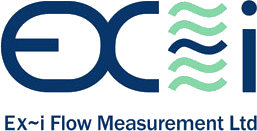The state of the environment was brought into sharp relief with the COVID-19 pandemic. While you would have thought the world would be distracted by the virus, most were astonished by the improvement in the environment. The air cleared, wildlife emerged, and there was a sudden realisation that humans are the cause of the climate crisis.
While the oil and gas industry is seen as a root cause of some of these issues, sustainability is possible with better use of technology. Producers and manufacturers of oil and gas-based products can contribute to saving the world.
Here we make a case for greater accuracy and efficiency. In summary, a case for better metrology.
Getting more for less
As far back as 2014, McKinsey was reporting the need for better use of data. The argument they presented would have sounded highly appealing to the C-Suite of oil and gas companies. They noted:
“Even small improvements in production efficiency will have a meaningful financial impact.”
The use of Big Data, collected with the effective and highly accurate metrology, could maximise the assets in the ground. It would be possible to avoid costly errors and prevent the missed opportunities of resources still accessible to smart drilling. McKinsey issued another warning to the sector in 2017, again noting that analytics could prevent 23% of production potential that is left in the ground.
The need to act on raw data
This argument for adding financial value to a company can also be made to improve its environmental credentials. Avoiding environmental accidents and extracting oil and gas with less on the ground resources will ultimately reduce any impact on climate change. Tightening processes will deliver sustainability, as fewer resources mean fewer carbon emissions for the same output levels.
Better metrology could also help the sector reduce freshwater usage, prevent oil and methane leaks and improve auxiliary processes across the supply chain. It could mean that resources from an existing location would reduce the need for further environmentally damaging exploration. Work at the bottom of the ocean, which harms fish and marine mammals and clears essential ocean floor vegetation could be reduced. It could mean the push to the Poles could be delayed until carbon capture technology has advanced.
Metrology and Climate Change
Technically, oil and gas will one day run out, as there is a finite amount to be extracted. Those drilling for these resources live with the truth that there is still an abundance of oil and gas; there is enough for centuries of energy.
The word sustainability in oil and gas might feel like an anathema but it is an opportunity, more than a curse. Using metrology to ensure efficiency and accuracy could make the most of that which is extracted. The more the sector can optimise production, the less impact it will have on the environment.
In short, acting on analytics will stop wasteful practices that are creating bottlenecks, leaking resources and causing accidents that will eventually cost the earth. If industry leaders choose to ignore this warning given by the stay-at-home orders, then they could find themselves irrelevant in the face of energy alternatives.
Ex~i Flow supports companies involved in oil and gas production. If you would like to learn more about metrology and how we can support improved efficiency and save the world, contact us today.
